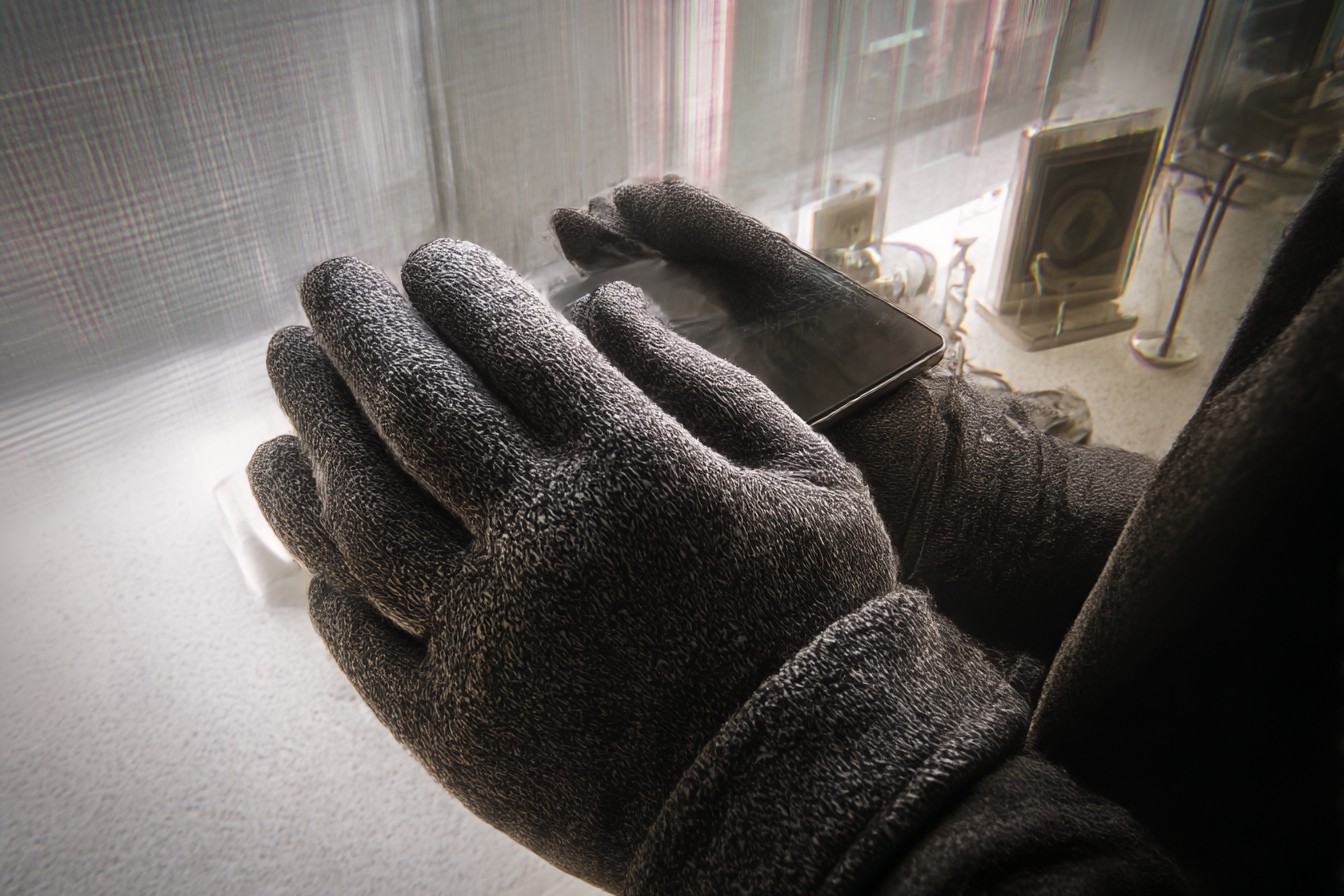There is no treachery more personal, no betrayal more sharp, than that of a smartphone battery dying at the moment you need it most, my phone’s battery is fully charged and details such as the unabashed need for social validation underscore my existence. That is my core identity. My list of unforgiving foes is eldritch, overly narcissistic, and egotistical co-workers who shiv you in the back. A romantic partner who does not fully subsidize the gas bill. A friend who accidentally lets slip the one nickname from childhood you will never outlive. None of them compare to the murky depths of despair. The pain my smart phone brings when the battery icon turns from yellow to red, then blinking weakly, and finally goes dark.
The cycle happened once more last Wednesday.
My phone was at the train station along with the other token passengers I view as fellow commuters. I had carefully planned out everything. Cabin coffee from home, a loaded up phone with the podcast ready to go for the ride, and quiet gmail access during the expected train delays. What delays aren’t part of the alluring experience of rail travel? All of that checked, I view myself as a modern efficiency model.
Mobility is essential and enables freedom…
Suddenly my world fell apart when I was presented with: 3% battery. So minuscule it might as well be said to be nonexistent. A hatred invoking number for my brain where every neuron has been aggressively programmed to respond violently to low phone battery life.
A figure which transformed a responsible adult into a pathetic hunter-gatherer, scavenging the region for the increasingly rare power socket in public domain. How did this come to be? I plugged my phone and left it charging overnight.
I have done moderate use with it throughout the morning. And, yet, there is no reasonable stretch of the imagination that should have my battery dead at mid-afternoon. And yes, there it was, gasping its last breath as my train pulled into the station.
I had close to 90 seconds to make a critical decision: utilize the remaining battery to screenshot my ticket, or frantically search for the email confirmation that has the PDF version. I opted for the screenshot, but my phone decided to die at the worst possible moment, leaving me with a black screen and the harsh yet inevitable truth that I was going to need to explain myself to the ticket inspector. This situation — sudden loss of battery — has become so frequent that it seems to be a collective cultural phenomenon.
The cocktail of disbelief, frustration, and betrayal is something that all of us have experienced at the same time. All of us has verbally assaulted the engineers, the designers, and the corporate bosses because, to put it bluntly, they all seem to fail, at what is, really, a pretty simple challenge: creating a battery that lasts the length of time we actually require. This is the battery paradox itself.
As for almost every other dimension into which we try to shove our smartphone, it does manage to capture the heart of modern-day technology. For one, the cameras on it can do what very few devices out there can do; capture a splendid close-up of a housefly’s individual eyelashes. For another, the processors perform tasks with such ease, you’d never believe they were doing the electronic version of the Herculean labors, like a room full of monumentally ancient, bulky, computers.
Not to mention, all those other somewhat unseen smartphone features. Like the ability to use GPS to pinpoint your location and get you to the next place you are going to while literally giving you turning instructions. It does seem though, that they cannot maintain a consistent power level for the whole day of use without extreme care.
The smartphone battery is the weakest link in the otherwise impressive chain, the Achilles heel of our digital companions. And what is particularly maddening about this limitation is that it feels more like a choice than a necessity. Do you remember when it was standard for cell phones to include a removable battery?
I do too. I cherished a phone that let me store an extra battery in my purse. When one drained, I could simply swap it out with the one put on standby inside my not-so-chic cabinet that I carried around.
That was a moment of low-tech glory, but that changed all too quickly. Add in a relentless march toward uniform svelte silhouettes and manufactured obsolescence, and you have a world where we, the users, are no longer granted access to our batteries.Enclosed by glass backs or aluminum shells, these items could only be reached by the daring individuals who would risk warranty almost demolition with the aid of some specialized tools and a fair amount of effort. The reasoning from the manufacturer claimed not allowing the covers to be removed would increase the robustness of phones, their thickness, and internal space efficiency. Depending on the manufacturer, the more cynical perspective involves someone like me who, having been burnt so many times, opts to accept the burning perspective of needing to throw away the entire phone instead of replacing the battery that is decently priced.
Irrespective of perspective, we still cannot escape the requirement of needing to charge the battery to remain functioning. There still is that feeling of having to abide by feudal laws, hierarchy order, and the control of those at the higher utopian level. We truly are at our lowest socio-economic position: poverty. Driven by the disruptive power of our phones, we reorganize our schedules based on the remaining power. These devices in fact forfeit our freedom to control our time.
This reality generates what we term battery and anxiety and needs to be relieved.
We carry around power banks that are almost as big as textbooks. We dim screens to levels that require almost squinting to look at them. We have become practically obsessed with closing background processes.
(Of course, it is possible that we set our devices to saver mode and that is why they become a little too zen for our tastes.)
Even so, we face the same issues with the phone battery. It is fond of being unreliable. Some days, my phone withstands power usage from the moment I wake up until the last moments of the day, with no spare power left.
Or I look at it and go, ”Why, oh why, do you do this too me?” I mean, if I glance at it and do not stare, or rather, if I do not point attention in an explicit manner, why is it doing this? Why is it volatile and going up and down make me anxious? For sure, provides the phone’s battery dying—AND it knows for a fact that it is consistent on yes, running out of juice—this might be one thing.
Grudgingly, you connect the charger. You all but acknowledge the phone’s “death,” effectively deeming it a mere “non-cel-viant” (Celsius for the magic, warm way a phone stays powered and alive) machine. But what of your phone that is intermittently functional—do you have control over whether it is purposefully failing or just inept, and what do you do while everything is in limbo?
What can drive this random mechanical selection? It wanes with change of surroundings; temperature seems to be one of the major zones disrupted, along with an increase or decrease in signal strengths.
Such preposterous claims remain dubious till the day I am too old to give a damn about explaining anything. What control do they have over the static processes I neither approve nor fathom my being in charge of? Especially when I am not in control of their movements. The alignment of planets does indeed matter, along with the battery demigods.
At long last, these people have control whether I hand over full influence over what shapes my thoughts. It’s ironic how the devices we carry these days have become too useful. Phones freely dictate my productivity; from the tiniest task of communicating to whiling away free time and entertainment, all till the fateful hours before ‘urgent’ tasks sealed my fate.
Greater the claim, larger the chances our phones willingly go on to ‘power save’ mode. Need directions to the nearest hospital? Too bad—wide selection of dead batteries offered!
About to show the boarding pass for your flight? Phone’s out of battery. Waiting on a call about an enticing job offer?
You guessed it—phone’s out of battery. I’ve come up with theories about this. Perhaps, concerning battery life, there is too much anxiety that requires monitoring which makes a person check the battery level excessively.
This theory suggests that the device’s screen turning on more frequently makes the battery deplete quicker. A “self-fulfilling power prophecy,” in my friend Todd’s words. Or maybe something more diabolical is at work here.
Perhaps, as a society, we underestimate how intelligent our phones actually are. They decide to die when they are most needed, but when you don’t, is when it is most convenient to them. It is a way for the phone to rebel against the demands placed. To paraphrase, ‘You want me to act as a navigation GPS, digital camera, encyclopedia, social media app, entertainment center, and a work desktop? Whatever, but I’m going on standby when the person using me will need me the most.’
Consider that when you look at my black screen.
What about the battery? The manufacturers seem to have a plan in mind for each new model. With every new version, they do promise better battery performance—whether it is through the sheer size of the batteries, improved processors, more effective software, or a version of the software that has the audacity to behave nicely for once.
Remarkably, however, we have yet to see the long-lasting, all-day dependable battery come to life. It remains just as difficult to find as spotting Gordon Lightfoot in a traffic jam downtown. And the chargers—let us take a moment to analyze them.
The multitude of charging standards is absolutely absurd, not to mention the feeble effort made toward offering some universal standard, and the fact that for some reason, the old charging cable no longer works. All these components combine to suggest that you are always on the brink of an anxiety-induced frenzy due to your phone’s battery status. The last count I made for all the cables and chargers in my house was astonishing. Seventeen.
Some chargers work with certain devices while others do not. Some provide quick charging, while the rest function at a pace characteristic of the movements of a continent. Others are fraying and held together only by tape and hope.
I tend to never throw chargers away because it can always feels like an omen from fate. Just imagine what would happen if I threw away a charger, what is important or essential is always something vital. I need to emphasize that, it is not known, ‘borrowing’ a charger suggests I have truly possessed a charger that is originless with me and carries zero value. It definitely has gone through a one-way route to another dimension. The charger has a completely different owner but there is nothing to worry about.
Only the next compliant soul in an everlasting series of charger displacees- a series that has existed since the first Nokia required a plug. Naturally, the final answer offered by firms is wire-free charging; a technology that gets rid of the mess of cables but brings fresh worries. Did I place my phone on the charging sweet spot just right?
Am I receiving full speed charging or at the back-breakingly slow “trickle charge” rate? Why is the device warm to the touch? Is wireless charging blissful convenience or a cumbersome fire risk?
However, with all the various ways to charge our phones, an unfortunate reality still stands before us. No matter how quickly you charge or how long you remain plugged into the socket, no matter how devoted you are to the ritual of nightly charge, no matter how much faith you pledge to the power cord, there will come a day – most likely an important one- when your phone does up for no logical reason. And, you will be standing in an analog world.
The very last train ride I took was the last, because, frankly, I would not wish to experience such an embarrassing adventure again. The reasons are plenty, starting with the bored ticket officer, who most likely had an attitude and was not the least impressed with my excruciated explanation of how my cell phone’s battery died on me. Not that I expected him to be in the least, but so many people who availed of the train’s services and boarded that carriage prior to me used their phones as claimed to be equally believable.
What could I possibly do then?
Before he had even begun reading my advance-purchase e-ticket, the idea I had of shoving it in his face claiming I possessed an already bought ticket would get me openly ridiculed. Train Adventure in the Numbers:
1.
1 Dead Battery
2. 1 Ticket Inspector With No Sympathy
3. 1 Reluctantly Content Train Passenger Who Paid Twice For One Trip
4.
1 Less-than-content Train Traveller
5. Lesson Not To Forget Next Time: For travelers who claim they will be on the go for a dozen hours, always ensure that your gadgets’ batteries do not leave you wanting. Looking into the distance as it zips by the scenery, having no videos to watch, documents to work on, emails to check, and all these said devices conspiring against me, I enjoyed my glimpse of peace.
We treat the batteries on our smartphones just like we treat death. We understand that it is going to come and there is not going to be any recharging; we will be fully spent, but we are unsure of when it will take place, maybe there is a lesson within this.
Maybe the smartphone battery crisis is a memento mori for the digital world, reminding us why all of our electronics are mere life proxies that we seem to forget exist, along with the insights of voltage and circuit theory we don’t recall and still haven’t accepted the simple truth. Regardless, life is brief. However you put it, I’ve got used to a new routine. I plug my phone at night. At night I make sure it’s set to 100% before I head out the next day. Every time I leave the house, I grab a portable charger, charging cable, and a physically printed version of every document I might desperately need. It’s completely senseless.
It’s over the top and honestly, a tad ridiculous that I have to complete these steps for a piece of technology that aims to ease my workload. Still, while I compose this text, my MacBook Air seems to be straining at the hinge.
It’s an act of disloyalty as profound as one committed by my closest acquaintances. They maliciously isolated me by pilfering my lunch, absconding with my bike, and tricking my mother in the process. Sure, I settled those debts and plan to do so again, but I was hoping to channel my frustration into some form of understanding, which turned out to be a futile endeavor.




